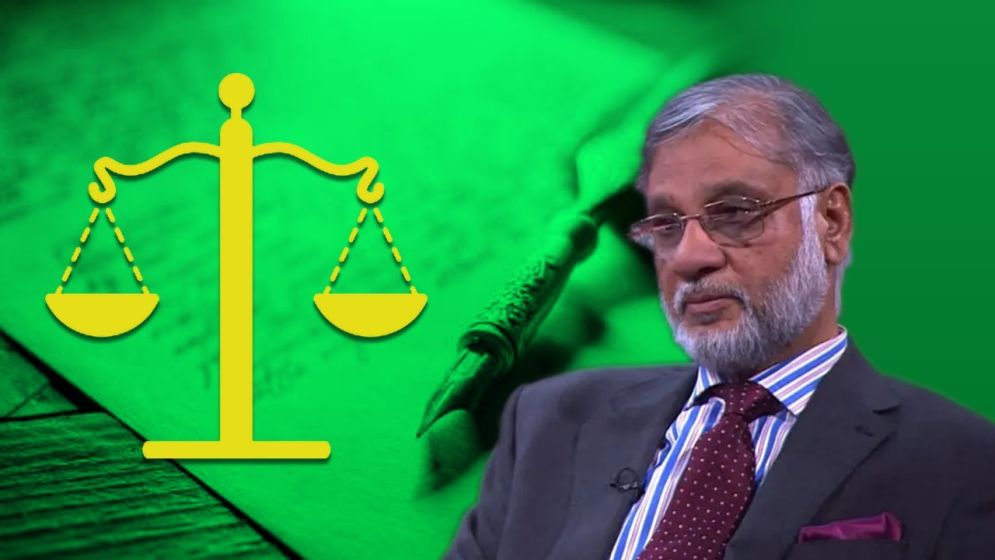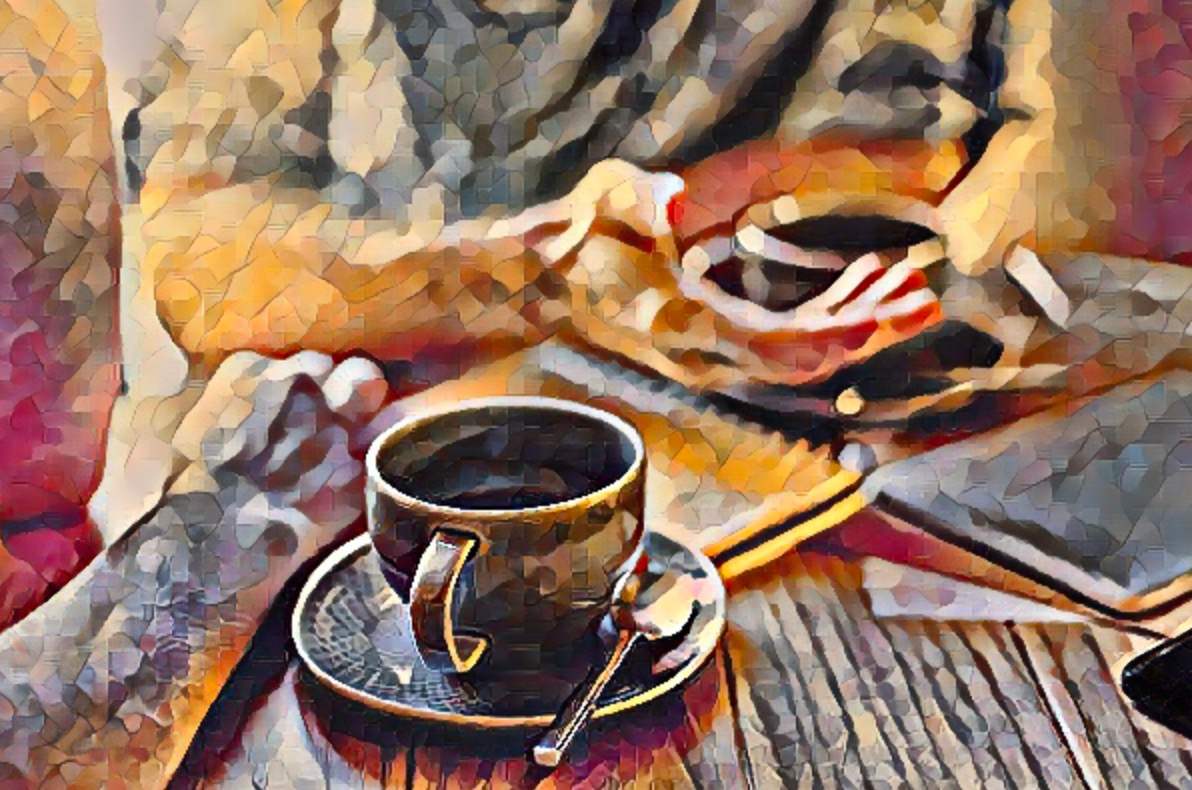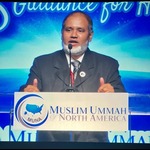In the silence, wisdom and unspoken depths: My time with barrister Razzaq

It must have been 1988, or maybe 1989–the exact year escapes me now.
I was a boy of 11 or 12, standing outside our home in Dhaka, which happened to sit across from the central office of Jamaat-e-Islami. My father (Motiur Rahman Nizami) was headed to the airport for a trip to the United Kingdom.
As we stood by the car, a tall man in a dress suit approached. My father greeted him warmly: “Are we ready, Barrister Sab?” he joked.
The man smiled and nodded. My father glanced at his hands. “No briefcase?” he asked. Without missing a beat, Barrister Abdur Razzaq replied, “I will be your briefcase.”
I didn’t know it then, but that offhand comment would be the first chapter of a long and quietly extraordinary story.
We lost touch after that brief encounter. It wasn’t until the summer of 2013–more than two decades later–that our paths crossed again. I had just completed my Ph.D. and found myself with a bit of time.
Barrister Razzaq was visiting the United States for a series of high-level meetings, and I volunteered to accompany him through New York and Washington, D.C.
Our first stop: the United Nations. As we prepared to meet the Assistant Secretary General, I admitted I was nervous. “Do you have a notebook?” he asked. I didn’t. We made a quick detour to Staples. “Take notes,” he instructed. “And afterwards, we’ll exchange them. That’s how you get a 360-degree view.”
It wasn’t just meetings. He prepared with the intensity of a trial lawyer and the discipline of a scholar. Every person we were scheduled to meet–he knew their history, affiliations, and likely positions.
Before we left the hotel room, he would pray two rakats and ask for divine guidance. On the road, he’d pull a Quran from his briefcase and recite while I navigated D.C.’s punishing traffic. He wasted no time, not even in transit.
That week, something shifted. By the time he boarded his flight back to Dhaka, I was no longer just a volunteer. I had assignments. I had responsibility. And whether I was driving six hours to Washington after a long week of teaching or burning the midnight oil writing memos, I was all in.
He had pulled me into the work–advocacy, strategy, relentless purpose–and I couldn’t let go.
Then came December 18, 2014, just days after the execution of [Shaheed] Abdul Qader Molla. My phone rang. It was Barrister Razzaq. He was en route to Washington again and gave me his flight details. Nothing in his voice suggested urgency.
But when I picked him up at the airport, he had only a carry-on. No checked luggage. We began driving. Then, with the calm certainty of someone whose mind had already crossed oceans, he told me: he had been forced to flee Bangladesh.
There would be no return—at least, not anytime soon.

The exile’s discipline
He said it plainly. No anger. No bitterness. Just the quiet conviction of a man who had done his part and would now continue the fight from afar.
I was still driving when the tears came. Quietly. Steadily.
That night, the briefcase that once joked it could carry the world left his country with nothing but resolve.
After that December night in 2014, Barrister Abdur Razzaq lived a life divided–between the United States and the United Kingdom, between exile and unshakable purpose. Whenever he returned to the U.S., I became his default aide, chauffeur, and confidant.
The more time we spent together, the deeper my admiration grew. Respect gave way to love, and love to something like reverence.
Exile wears people down. It frays routines, blurs the line between homesickness and fatigue. But not him. He treated exile the same way he treated everything else: with method, intention, and a stubborn refusal to waste time.
Health, for instance, was non-negotiable. He walked an hour every day, rain or shine. He was careful about what he ate. “If you don’t take care of your health, no one else will,” he would say with the finality of a courtroom ruling.
Books were his refuge. An avid reader, he would lose himself for hours at Barnes & Noble. He once asked me to track down a list of Barack Obama’s favorite reads. In meetings, he would turn the conversation to books–asking friends what they were reading, then turning to me to track down copies.
His curiosity didn’t stop at politics or law. He read voraciously–carrying books everywhere, annotating them with questions, metaphors, and ideas. When a passage confused him, he’d ask me about it. “What’s a ‘Monday morning quarterback’?” he once asked.
I explained American football to a man trained in British law and steeped in South Asian politics. Another time, he asked about the phrase “the chips have fallen.” I hesitated—“It’s gambling slang,” I said.
He laughed with the delight of someone learning the rules of another civilization.
But the book that never left his side was the Quran. His personal copy was a mosaic of sticky notes and reflections, a living dialogue between text and soul. He would recite verses aloud, pause, and share his insights–not to preach, but to ponder aloud.
He also listened–truly listened.
In meeting after meeting, I witnessed moments that would make most people raise their voice or storm out. Disrespect, slander, cheap provocations. I would bristle. But not him.
He’d lean in and say, quietly, “Did you take notes?” It was his way of saying: even ugliness has information. Even rage is worth studying.
That said, he wasn’t incapable of anger–just exceedingly careful about when and where to show it. Once, we were late to a meeting in Washington, D.C. The parking situation had forced us blocks away, and I was hurrying across the street despite the “Don’t Walk” signal.
There was no traffic. But he stopped in his tracks, looked at me, and said sternly: “Don’t ever break the law, no matter how small it seems.”
That moment has stayed with me. Integrity wasn’t theoretical for him–it was embedded in muscle memory.

The lasting conversations…
Over time, our conversations turned personal. He told me stories about my father–things I had never heard. In 1972, before attending a youth conference in Dubai, Barrister Razzaq didn’t own a suit.
My father went out that night and bought him one. Years later, in 1986, when he returned to Bangladesh after giving up a booming legal practice in London, it was my father who received him at the airport.
He recounted this as if it were nothing. But those of us living in the West know the weight of that choice. When he left London, he told me, “Money was coming in through the door, the window, even the air conditioner vent.”
And yet, he walked away–not for fame or position, but for conviction. He believed in an idea, and he gave it everything. His time. His success. His safety.
In a world where principles are often negotiable, Barrister Abdur Razzaq was a man who chose discomfort over compromise. Again and again.
Over the years, we spoke for countless hours—about politics, law, faith, books, history, and the unpredictable nature of exile. We did not always agree. But even in disagreement, Barrister Abdur Razzaq responded with grace that is vanishingly rare in our times.
He listened without defensiveness, debated without ego, and always left space for other perspectives. It wasn’t tolerance–it was character.
After the COVID-19 pandemic, his trips to the United States became infrequent. His final visit came in the summer of 2023. It was brief, unusually so.
For the first time in years, we didn’t see each other in person. We spoke by phone, and promised to reconnect soon. I didn’t know then that "soon" would never come.
Had I known that was our last chance, I would’ve canceled every meeting, cleared every calendar, and driven any distance. But time has a cruel way of hiding its goodbyes.
On May 4, 2025, Barrister Abdur Razzaq left this world. He left those who knew him, who loved him, who followed his quiet example of conviction lived out loud. But what he left behind is far greater than absence.
He returned home, in the end. After the July revolution, his exile ended. He was able to step once more onto the soil he never stopped loving–Bangladesh.
That alone brings a measure of peace.
He gave everything for that country. Not just his legal mind or his political muscle, but his comfort, his career, and decades of his life. He gave everything for the cause he believed in.
And in return, he earned something few ever do: the respect of friends and adversaries, across ideological lines.
I will miss him–my mentor, my guide, my “Chacha.” And Bangladesh will miss him. Because with his passing, something larger has ended.
It is the end of an era.
May Allah accept his good deeds, forgive his shortcomings, and grant him the highest place in Jannah.
Ameen.
—-
Dr Mohammad Nakibur Rahman teaches finance at an American University.

